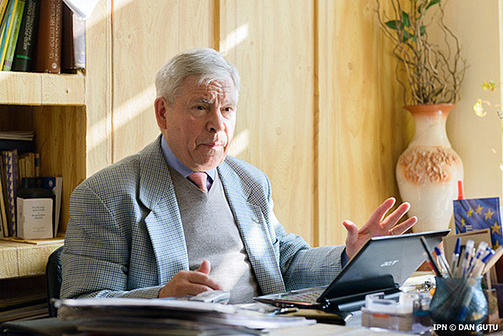---
Moldova generally does not face ethnic problems, if only at linguistic level, when you ask something in one language and get an answer in another language, said political analyst Mihai Cernencu, who heads the Department of International and Politological Relations of the Free International University of Moldova (ULIM).
The analyst noted that the Autonomous Territorial Unit of Gagauzia was proclaimed in 1994 in order to preserve the ethnic identity of the Gagauz people. But, today’s administration of the region is engaged more in politics than in the promotion of the democratic values and the keeping of the Gagauz language. Bashkan Mihail Formuzal’s statement that Gagauzia will withdraw from the composition of Moldova if the Association Agreement with the EU is signed can be regarded as an example of separatism promotion. The same can be said about the statements that there will be created ‘druzhinas’ (own army units). However, the major risk of a hotbed of instability comes from outside.
According to Mihai Cernencu, Russia pursues the goal of geopolitical expansion and the risk of separatism in Moldova in this context is possible, being promoted through nongovernmental organizations and political parties financed by Moscow. Russia defends the interests of the Russians in the weak states, where it is allowed from political viewpoint and where it can exert influence. It can resort to promotion of separatism in Moldova on the pretext that the country will lose its sovereignty after the signing of the Association Agreement with the European Union.
After March 21, when Ukraine signed the political part of the Association Agreement with the EU, the European Union also deployed 500 representatives to watch out for a possible invasion by Russia. In the case of Moldova, the EU can also employ mechanisms to help the country. The Association Agreement transfers Moldova to an area of security, freedom and free trade, said Mihai Cernencu.
According to the analyst, in order to prevent the promotion of separatism in Moldova, the authorities should make more changes to the Law on the Security and Information Service so as to allow the Service’s employees to tap the telephones of organizations and parties that endanger the sovereignty, independence and territorial integrity of Moldova. The Penal Code should also be modified by introducing punishment for separatism promotion, while the Ministry of Justice must not register and must ban parties that promote separatism in Moldova.
Irina Ţurcanu, IPN




